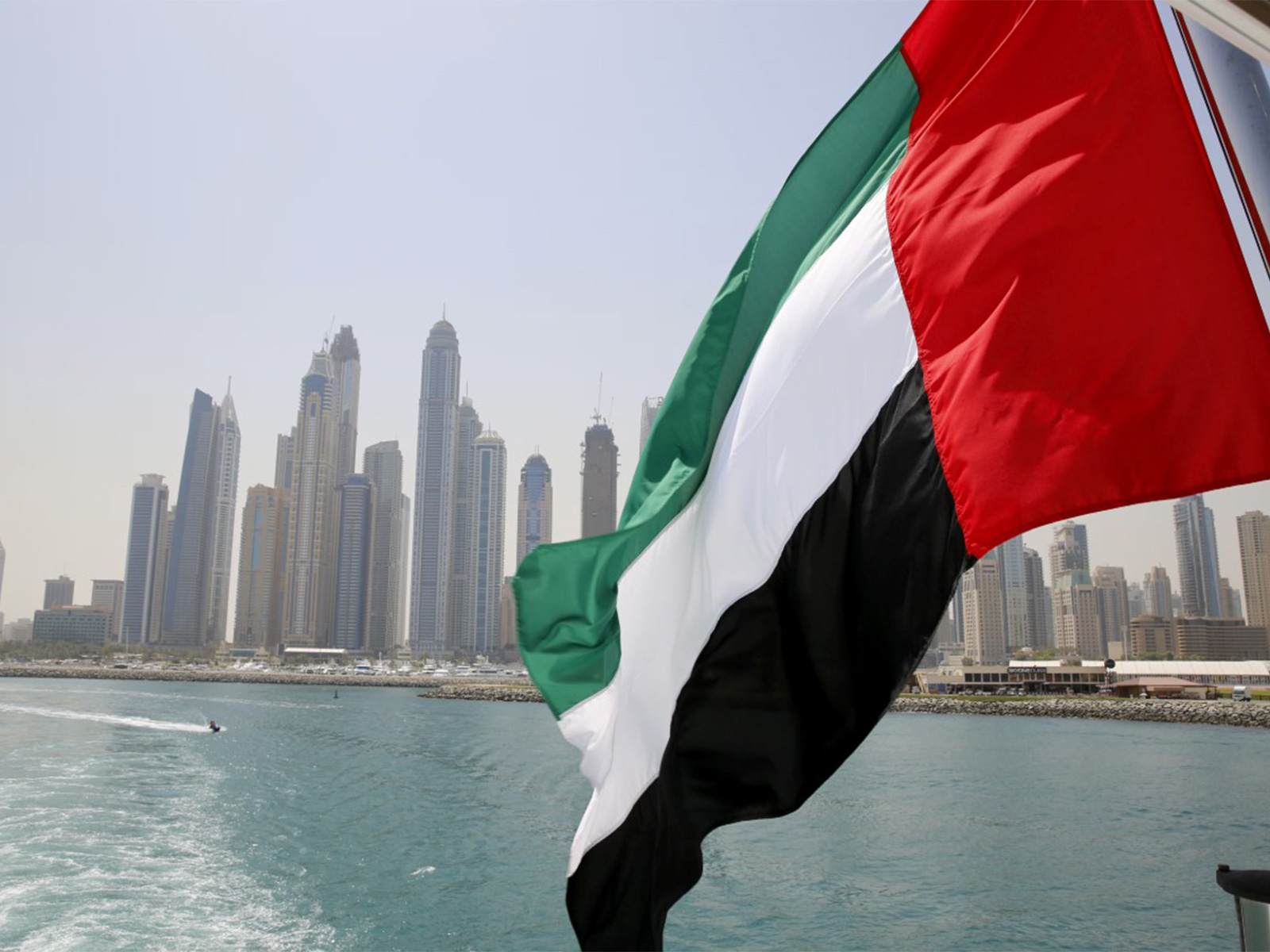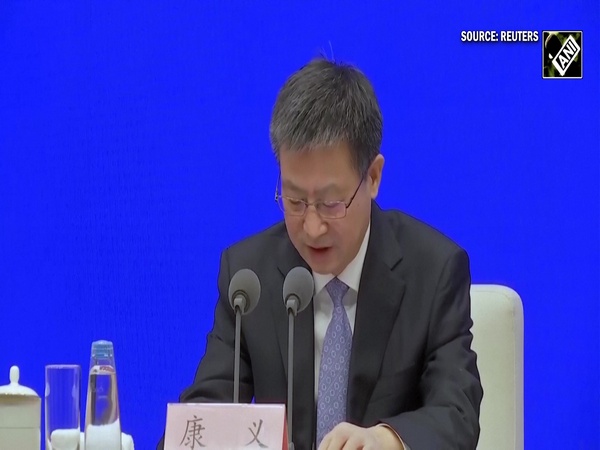China Coast Guard gains new powers
Feb 15, 2021

Hong Kong, February 15 : The Chinese government rammed through a new domestic law on 22 January 2021 giving the China Coast Guard (CCG) greater authority, a move that will boost tensions in the South China, East China and Yellow Seas.
The 25th Standing Committee session of the 13th National People's Congress had posted an online version of the Maritime Police Law of the People's Republic of China (PRC) on 4 November, and it was eventually promulgated on 1 February.
The CCG had been complaining for years about inadequate legislation governing how it should use force. Some proponents for change thus argued for greater flexibility when responding to contingencies.
Unfortunately, this law is highly problematic; one clause states it "will allow the coast guard to check foreign vessels, mooring and operating in China's jurisdictional seas." The difficulty arises in defining just what "jurisdictional seas" are. China illegally claims the vast majority of the South China Sea via its ambiguous Nine-Dash Line. However, such maritime claims have absolutely no international credence under the United Nations Convention on the Law of the Sea (UNCLOS), to which China is a signatory.
Indeed, Bill Hayton, an associate fellow with the Asia-Pacific Program at Chatham House, pondered, "What does China mean by 'jurisdictional seas'? If it means UNCLOS definitions of territorial sea and exclusive economic zone - then that would be a major de-escalation and a big step towards peaceful conflict resolution in the South China Sea."
Yet Hayton continued: "If...'jurisdictional seas' means everything inside the U-shaped/9-Dashed Line, then China is setting itself on the opposite path - towards conflict. That could mean conflict with neighboring countries or with any passing navy." The academic concluded, "My guess is that Beijing will leave the definition unresolved, adding to the uncertainty. This is the legacy of the nonsense of the U-shaped line..."
No sane person would expect China to concede that its reclaimed reefs and territorial claims in the South China Sea are illegal. Chairman Xi Jinping ignored and ridiculed the Permanent Court of Arbitration when it hammered his unlawful South China Sea claims in a July 2016 decision. As far as Beijing is concerned, the phrase "jurisdictional seas" must refer to all maritime territory that China currently claims, no matter that it is unlawful.
Brunei, Malaysia, the Philippines, Taiwan and Vietnam all contest Chinese claims in the South China Sea. Foreign warships, especially American ones, regularly transit the South China Sea and the Taiwan Strait too, drawing the ire of Beijing.
Beijing has a habit of ignoring international jurisprudence, but no domestic law permits China to usurp international law like UNCLOS. As Lynn Kuok, the Shangri-La Dialogue senior fellow for Asia-Pacific Security at the International Institute for Strategic Studies, observed, "A power that does not adhere to rules in one area is very unlikely to adhere to rules in another area."
Another sticky issue with the Maritime Police Law of the PRC is that it permits the coast guard to use weapons against foreign ships that do not comply with CCG instructions.
It specifically allows "all necessary measures, including the use of weapons, when national sovereignty, sovereign rights and jurisdiction are being illegally infringed upon by foreign organizations and individuals at sea, or are facing an imminent danger of illegal infringement." Such descriptions are nebulous.
Collin Koh, Research Fellow at the Institute of Defence and Strategic Studies in Singapore's S. Rajaratnam School of International Studies, said, "Authorizing agencies to open fire in the course of their law enforcement and sovereignty assertion duties is nothing new, since coastal states have had domestic laws governing such provisions. In 2018, Vietnam passed its new coast guard law that outlines the same. What's interesting is how Beijing seeks to define the conditions and a 'ladder' governing graduated use of firearms."
Four conditions are listed for the use of force, one of which is facing situations in the course of stopping "unlawful activities". This point leaves it wide open to interpretation as to what 'unlawful activities' constitute.
Another section of the law covers conditions for employing shipborne or airborne weapons besides handheld ones: (1) Conducting counterterrorism duty; (2) Handling serious violent incidents at sea; and (3) When vessels/aircraft conducting law enforcement duties faces attack by weapons or other dangerous methods. Koh wondered: "Point 2 on a 'serious violent incident' would be open-ended here; does a collision by foreign civilian, maritime law enforcement or naval vessels in close-in maneuvers constitute such?"
Furthermore, Clause 50 states that CCG personnel should rationally assess the extent of necessity in use of weapons, according to the nature of danger, extent and urgency of the concerned unlawful activity and perpetrator, to avoid or minimize unnecessary casualty or property loss. Koh explained, "This left it open-ended for CCG personnel to interpret how force should be applied against another vessel, which would open the possibility of outright sinking it if necessary."
Even without this new law, the CCG has been involved in a number of incidents where ships have deliberately collided with, and even sunk, foreign boats. Now the new law seems to give the CCG carte blanche to carry on with such dangerous maneuvers, with little emphasis on proportionality and necessity.
The new law also authorizes the CCG to demolish "buildings, structures and various fixed or floating devices" belonging to foreign organizations and individuals "in the sea areas and islands under our jurisdiction". This wording is destined to cause enormous tension. Other claimant nations have military installations in the Spratly Islands, so does this law enable China to remove them seeing that they were built without its permission? This is a most troubling point.
In this way the CCG has conjured up "stability-inducing cover", whereby it first orders a party to desist from constructing structures before escalating to physically removing them. This will be incredibly destabilizing if it occurs in a disputed area where the other party rightfully refuses to comply with non-binding Chinese domestic law.
China has established its own network of sensors in the Paracel Islands, plus seven military bases built on reclaimed reefs in the Spratly Island chain: Cuarteron, Fiery Cross, Gaven, Hughes, Johnson, Mischief and Subi Reefs, some with airstrips, naval berthing facilities and their own missile defenses. Yet now China will perhaps more strongly argue that no other nation has a right to similar facilities.
Alarmingly, the People's Liberation Army (PLA) has become more aggressive in the South China Sea. On 13 July 2020, then Secretary of State Mike Pompeo warned that shared interests had come under "unprecedented threat" from China, which "uses intimidation to undermine the sovereign rights of Southeast Asian coastal states in the South China Sea, bully them out of offshore resources, assert unilateral dominion and replace international law with 'might makes right'".
The CCG is already the world's largest coast guard. On 21 March 2018 it moved directly under the authority of the People's Armed Police (PAP). Since the PAP itself is answerable to the Central Military Commission, that means the CCG is definitely a military organization.
Its official missions are to fight crime at sea, maintain maritime security, support the development and exploitation of marine resources, protect the marine environment, manage fisheries and suppress maritime smuggling activities. China terms these "rights protection law enforcement".
The CCG is still a work in progress after its 2018 restructure. Wang Liangfu, the CCG's Political Commissar, said last September that the service's "foundational work has only just begun," but it continues to face many "real contradictions and difficulties". Progress has been made, but "when assessed in the context of the larger military system, [its] foundation remains relatively weak and standards remain relatively low". He acknowledged that a gap remained between Xi's expectations and current realities.
Nonetheless, with its vast fleet of vessels, few nations in Asia can compete with the CCG. Even many navies are outgunned. Furthermore, China uses a mix of fishing boats, People's Armed Forces Maritime Militia (PAFMM) and law enforcement patrol vessels to create ongoing presences in contentious locations, giving China a whole range of scalable options. One example was an intrusion near the Natuna Islands that caused a strong Indonesian military response at the start of 2020. Additionally, Japan reported that 333 Chinese vessels approached the Senkaku Islands in 2020, including for a record 111 consecutive days.
Andrew Erickson of the US Naval War College noted that the PAFMM "thrives within the shadows of plausible deniability". The US Department of Defense added in its annual report on China's military that these arms "enforce maritime claims and advance its interests in ways that are calculated to fall below the threshold of provoking conflict".
Since the first such event in May 2018, the CCG has been conducting joint patrols with the PLA Navy (PLAN). In January 2019, Admiral John Richardson, the US Chief of Naval Operations, reportedly warned the PLAN commander that the US Navy would treat coast guard and maritime militia vessels as combatants and respond to provocations the same way it would a Chinese navy ship.
Koh said, "Given that the assets of some of the Southeast Asian South China Sea claimant navies are outsized and outgunned by new-build offshore patrol vessels inducted into CCG service in recent years, this means that even these gray hulls face no guarantee that Beijing would restrain its white hulls from using force."
Beijing's narrative has long been that it contributes to stability in the South China Sea because it employs white hulls, whereas others use gray hulls. Koh explained: "...Beijing has flipped on its head the notion that white hulls contribute to stability at sea by virtue of projecting a non-militarized impression. Coercive behavior of PRC maritime law enforcement agencies since 2010 especially shows how white hulls embolden greater assertiveness."
Koh continued: "Simply put, Beijing uses the narrative of 'white hulls for stability' to advance its goals at the expense of rival South China Sea claimants, which in the first place don't have coast guards other than navies to speak of, or their coast guards just simply are much less capable to match." In light of their being outgunned, it is only natural that Southeast Asian claimants should employ navies to assert their claims.
"Beijing obviously found its narrative hitting the brick wall," Koh pointed out. "As such, the complaints within the CCG community about inadequate legislation and calls for support from PLA Navy, leading to recent measures e.g. joint patrol format and this new Coast Guard Law, blows away the facade of Beijing's narrative about contributing to stability."
"If anything, this means Beijing rivals in the East China Sea, South China Sea and Yellow Sea need to scale up their game too - beef up their coast guards and/or navies, improve interagency coordination, enact robust maritime law enforcement regulations and rules of engagements."
Koh's conclusion was that the Maritime Police Law presents new dangers. "...Ambiguous language that allows varying interpretations bestows more free room for CCG personnel to navigate. And while this does bestow flexibility upon the CCG, it also opens the risk to potential abuse by on-scene commanders and operators. This risk is operational, but has direct feedback to the strategic-political level since lack of clarity on 'waters under national jurisdiction' means the CCG can apply force not only in situations it sees fit based on the general outlines of this law, but within waters Beijing claim as its own, including historical fishing grounds disputed with others."

















